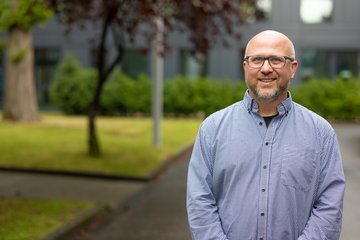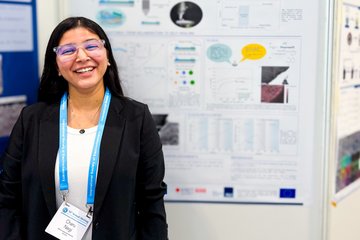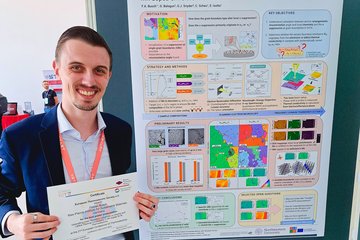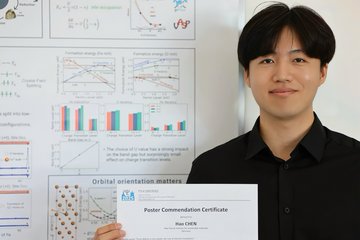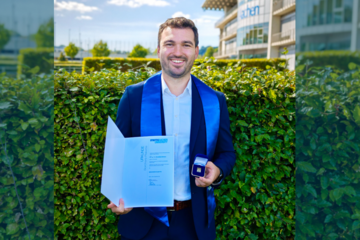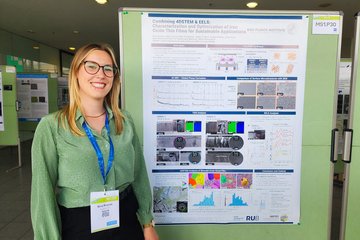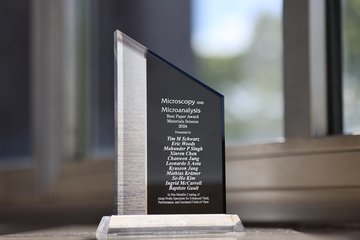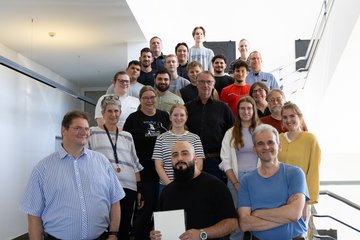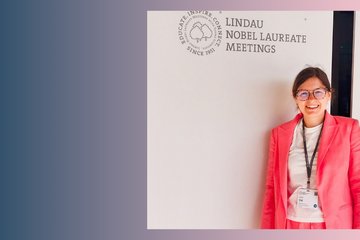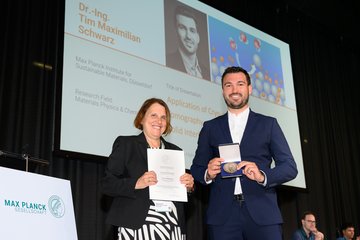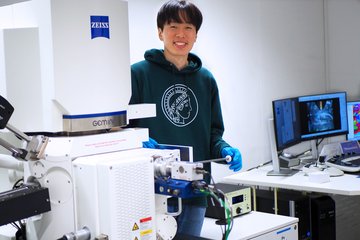All genres
201.
Journal Article
Designing Heusler nanoprecipitates by elastic misfit stabilization in Fe–Mn maraging steels. Acta Materialia 76, pp. 94 - 105 (2014)
202.
Journal Article
Reliability evaluation of thermophysical properties from first-principles calculations. Journal of Physics: Condensed Matter 26 (33), 335401 (2014)
203.
Journal Article
Impact of nanodiffusion on the stacking fault energy in high-strength steels. Acta Materialia 75, pp. 147 - 155 (2014)
204.
Journal Article
Ab initio based understanding of the segregation and diffusion mechanisms of hydrogen in steels. JOM 66 (8), pp. 1399 - 1405 (2014)
205.
Journal Article
Phase-field modeling of grain-boundary premelting using obstacle potentials. Physical Review E 90 (1), 012401 (2014)
206.
Journal Article
Influence of short-range forces on melting along grain boundaries. Physical Review B 89 (22), 224104 (2014)
207.
Journal Article
Role of the mesoscale in migration kinetics of flat grain boundaries. Physical Review B 89 (21), 214110 (2014)
208.
Journal Article
Ductility improvement of Mg alloys by solid solution: Ab initio modeling, synthesis and mechanical properties. Acta Materialia 70, pp. 92 - 104 (2014)
209.
Journal Article
Influence of the dislocation core on the glide of the ½<111>{110} edge dislocation in bcc-iron: An embedded atom method study. Computational Materials Science 87, pp. 274 - 282 (2014)
210.
Journal Article
Ab initio study of H-vacancy interactions in fcc metals: Implications for the formation of superabundant vacancies. Physical Review B 89 (14), 144108 (2014)
211.
Journal Article
Scale bridging between atomistic and mesoscale modelling: Applications of amplitude equation descriptions. Modelling and Simulation in Materials Science and Engineering 22 (3), 034001 (2014)
212.
Journal Article
First-principles calculations for point defects in solids. Reviews of Modern Physics 86 (1), 253 (2014)
213.
Journal Article
Extending the concept of defect chemistry from semiconductor physics to electrochemistry. Physical Review Applied 1 (1), 014001 (2014)
214.
Journal Article
Understanding and controlling indium incorporation and surface segregation on InxGa1-xN surfaces: An ab initio approach. Physical Review B 89 (8), 085307 (2014)
215.
Journal Article
Ab initio study of point defects in NiTi-based alloys. Physical Review B 89 (1), 014110 (2014)
216.
Journal Article
Separating strain from composition in unit cell parameter maps obtained from aberration corrected high resolution transmission electron microscopy imaging. Journal of Applied Physics 115 (3), 033113 (2014)
217.
Journal Article
Breakdown of the Arrhenius law in describing vacancy formation energies: The importance of local anharmonicity revealed by Ab initio thermodynamics. Physical Review X 4 (1), 011018 (2014)
218.
Journal Article
Perspectives on point defect thermodynamics. Physica Status Solidi B 251 (1), pp. 97 - 129 (2014)
219.
Journal Article
Ab initio based study of finite-temperature structural, elastic and thermodynamic properties of FeTi. Intermetallics 45, pp. 11 - 17 (2014)
220.
Journal Article
Interface structure and chemistry of GaN on Ge(111). Physical Review Letters 111 (25), 256101 (2013)
